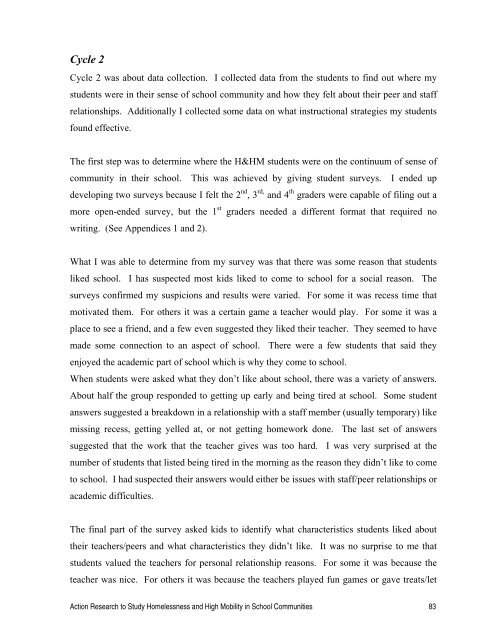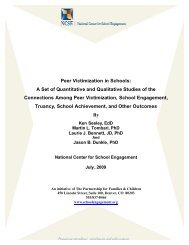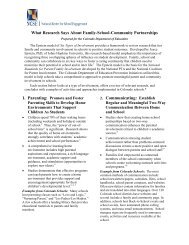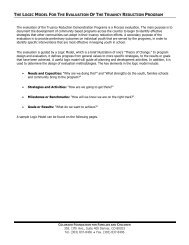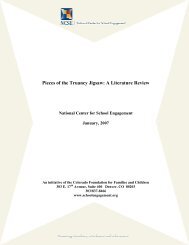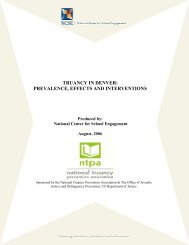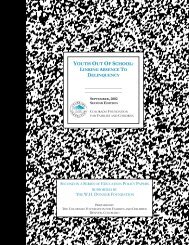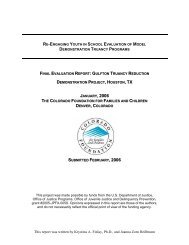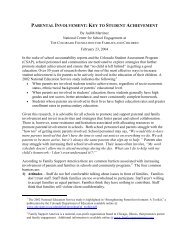Section 1: Academic Achievement - National Center for School ...
Section 1: Academic Achievement - National Center for School ...
Section 1: Academic Achievement - National Center for School ...
You also want an ePaper? Increase the reach of your titles
YUMPU automatically turns print PDFs into web optimized ePapers that Google loves.
Cycle 2<br />
Cycle 2 was about data collection. I collected data from the students to find out where my<br />
students were in their sense of school community and how they felt about their peer and staff<br />
relationships. Additionally I collected some data on what instructional strategies my students<br />
found effective.<br />
The first step was to determine where the H&HM students were on the continuum of sense of<br />
community in their school. This was achieved by giving student surveys. I ended up<br />
developing two surveys because I felt the 2 nd , 3 rd, and 4 th graders were capable of filing out a<br />
more open-ended survey, but the 1 st graders needed a different <strong>for</strong>mat that required no<br />
writing. (See Appendices 1 and 2).<br />
What I was able to determine from my survey was that there was some reason that students<br />
liked school. I has suspected most kids liked to come to school <strong>for</strong> a social reason. The<br />
surveys confirmed my suspicions and results were varied. For some it was recess time that<br />
motivated them. For others it was a certain game a teacher would play. For some it was a<br />
place to see a friend, and a few even suggested they liked their teacher. They seemed to have<br />
made some connection to an aspect of school. There were a few students that said they<br />
enjoyed the academic part of school which is why they come to school.<br />
When students were asked what they don’t like about school, there was a variety of answers.<br />
About half the group responded to getting up early and being tired at school. Some student<br />
answers suggested a breakdown in a relationship with a staff member (usually temporary) like<br />
missing recess, getting yelled at, or not getting homework done. The last set of answers<br />
suggested that the work that the teacher gives was too hard. I was very surprised at the<br />
number of students that listed being tired in the morning as the reason they didn’t like to come<br />
to school. I had suspected their answers would either be issues with staff/peer relationships or<br />
academic difficulties.<br />
The final part of the survey asked kids to identify what characteristics students liked about<br />
their teachers/peers and what characteristics they didn’t like. It was no surprise to me that<br />
students valued the teachers <strong>for</strong> personal relationship reasons. For some it was because the<br />
teacher was nice. For others it was because the teachers played fun games or gave treats/let<br />
Action Research to Study Homelessness and High Mobility in <strong>School</strong> Communities 83


